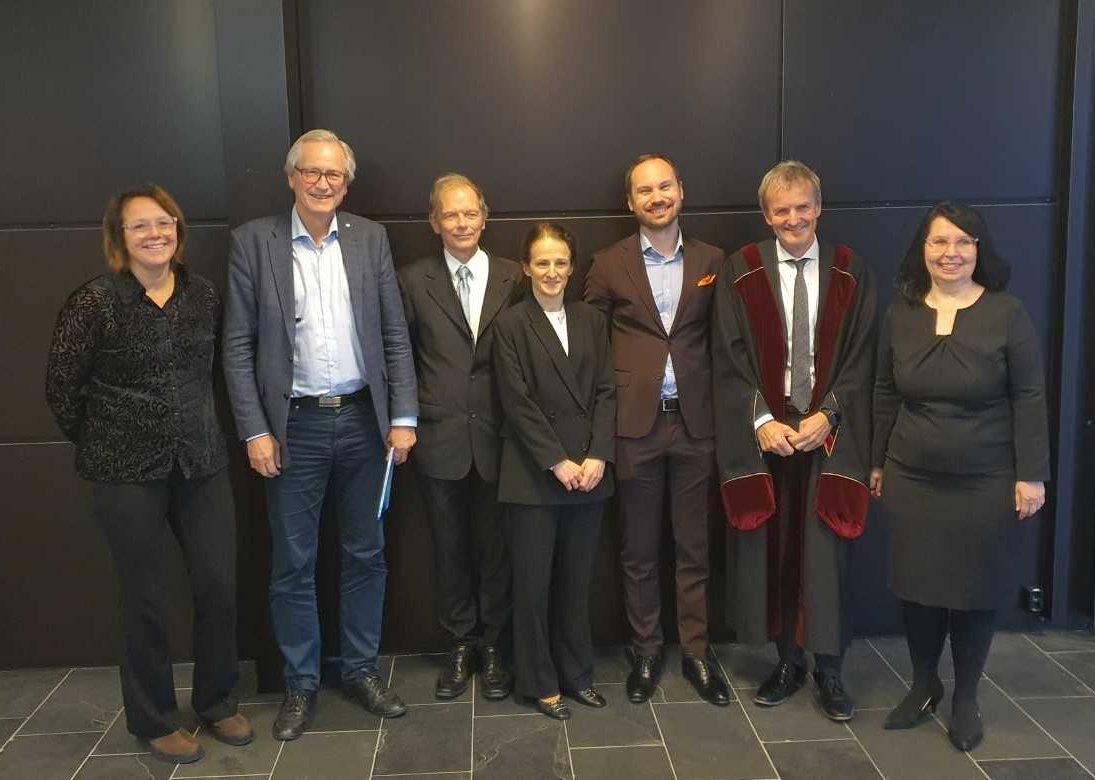Disssertation November 21, 2023 New PhD from ERGO – candidate Monika Mochol
Monika Mochol, now working as a Senior Consultant in Department of neurology at Østfold hospital, Kalnes, defended her thesis “Interactions between epilepsy, antiseizure medication and the immune system” for the degree of PhD.
The committee consisted of professor Reetta Kälviäinen, University of Eastern Finland as first opponent, Senior Consultant Sverre Myren, NTNU - Norwegian University of Science and Technology as second opponent, and professor Bjørnar Hassel, University of Oslo as third opponent. Chair of the defence was professor Morten Lossius, University of Oslo.
Principal supervisor was Senior Consultant Sigrid Svalheim, Oslo University Hospital with professor Erik Taubøll as co-supervisor.
Summary of her thesis:
The treatment strategy of current antiseizure medication (ASM) is based on the knowledge that seizures are a result of uncontrolled bursts of electrical activity in neurons. In the last 20 years neuroinflammation, activation of glia cells and blood-brain barrier (BBB) dysfunction have been central issues in epilepsy research. The majority of studies in this field are conducted shortly after seizure. In our work we investigated the presence of inflammation, astrocyte activity and BBB dysfunction in stable phase of epilepsy.
We used a cross-sectional study design to investigate the serum concentration of several biomarkers including the pro-inflammatory cytokine IL-18 and its binding protein IL-18BP. The analyses showed that serum levels of IL-18, IL-18BP and GFAP (known as a marker of astrocyte activity) were significantly higher in patients with epilepsy compared to healthy controls. Further, we investigated the potential effects of ASMs on the immune system. Results showed significantly reduced concentration of immunoglobulins in the epilepsy group, with most prominent change in patients using lamotrigine (LTG). Further, we studied alteration on immune gene expression caused by LTG in zebrafish larvae. The majority of the differently expressed genes were upregulated in the low LTG concentration, while most of genes in the high concentration were downregulated. The metabolic pathways affected by LTG were mostly associated with inflammation as well as development and regulation of the immune system.
In conclusion, we described the presence of chronic inflammation and astrocyte activation in patients with stable phase of epilepsy, and a modifying effect on the immune system of current ASMs. The clinical implications of those results are unknown, however in the long-time perspective chronic inflammation may contribute to disease exacerbation over time. This opens for new types of therapies in order to restrict seizure development.

